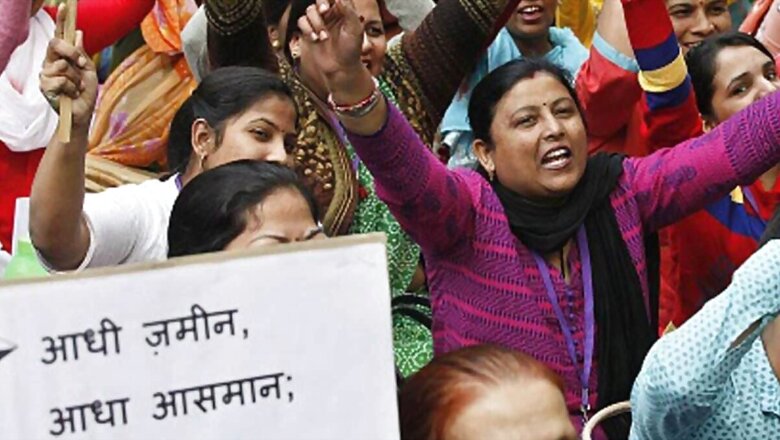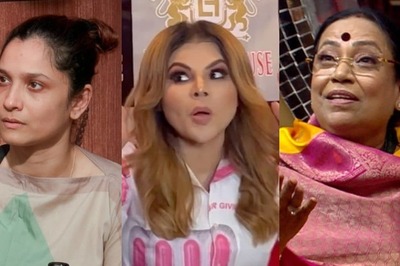
views
There is a sudden chatter about the women’s reservation bill.
This comes after two developments – one, with the vice-president, at an event, saying that women have the right and every effort would be made to ensure their fair representation. The second is Bharat Rashtra Samithi’s (BRS) K Kavitha’s letter to 27 parties, including the Bharatiya Janata Party (BJP) and Congress, asking them to bury their differences to ensure the bill is taken up in the special session of parliament and passed.
WHAT DOES WOMEN RESERVATION BILL SAY?
It envisages 33% reservation for women in the Lok Sabha and state assemblies. It will be for a period of 15 years and on reserved constituencies on a rotation basis. The bill was first introduced in 1996, but lapsed. It was introduced and passed by the United Progressive Alliance (UPA) on March 9, 2010, but only in the Rajya Sabha. This was to ensure the bill does not lapse.
Interestingly, however, unlike the bill, the panchayat raj has successfully seen women reservation. Bihar, Bengal and Rajasthan are some states where there is reservation for women.
THE PROBLEMS
Speaking to CNN-News 18 in 2010, just after the bill was passed, Congress leader Sonia Gandhi had admitted that she could not get her dream bill passed in the Lok Sabha because of strong resistance from allies such as the Rashtriya Janata Dal (RJD) and Samajwadi Party (SP). She told us that some from her “own party, too, are against it". “I hope to convince them some day," she had said.
These parties had said that there should be a sub-reservation for Other Backward Classes (OBC) and Scheduled Caste (SC) in this bill. Critics felt that it would only mean proxy representation for women as the men would call the shots.
Examples of women gram pradhans were cited to state how they never went to their panchayat office and the men ruled. Another example cited was of Rabri Devi, who critics said was the dummy CM while her husband Lalu Prasad called the shots.
BJP’S WINNING STRATEGY?
There is little doubt that Prime Minister Narendra Modi and the BJP were among the first to understand the power of women voters. It has helped the BJP in states such as Bihar and Uttar Pradesh (UP). It was the triple talaq bill which has moved some Muslim women to the BJP as well.
If the special session takes this bill up, it will help the BJP in many ways. First, if this bill comes up, the BJP is likely to withdraw the earlier bill and bring in a new one.
The BJP then will and can take credit for the bill finally becoming a reality.
With its numbers passage is not difficult. Also given the bill, no party, especially the Congress, Trinamool Congress (TMC), Janata Dal (United, BRS or YSR Congress Party (YSRCP) can afford to oppose it.
Gandhi had written to the PM a year ago asking for this bill to be passed.
With this bill, the BJP will not only win this battle for women voters but also expose the earlier stand of these parties. This would put some in a spot, but none can oppose it, as women empowerment can bring many parties to power.


















Comments
0 comment